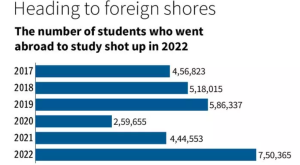- Comprehensive Document Gathering: Compile all necessary documents, including transcripts, degrees, proof of enrollment, financial statements (if required), and any supporting documentation specified by the program. Double-check the authenticity and validity of each document. This meticulous preparation prevents delays and potential rejections.
- Accurate and Complete Information: Provide accurate and complete information on all application forms. Verify every detail, especially personal information, contact details, and academic records. Errors can lead to application rejection. Take the time to review and proofread your application thoroughly before submission.
- Proactive Communication: Maintain open communication with the program administrators or designated contacts. If you have any questions or encounter any issues, promptly reach out for clarification. Prompt communication is key to addressing concerns proactively.
Common Application Mistakes to Avoid
Several common mistakes can hinder your application. Understanding and avoiding these pitfalls is essential for success.
- Incomplete or Inaccurate Information: Providing incomplete or inaccurate information is a significant pitfall. Ensure all details are accurate and complete to avoid delays or rejection.
- Late Submissions: Meeting deadlines is critical. Plan your application process meticulously to ensure all required documents are submitted on or before the designated date. Consider using certified mail or electronic tracking systems to verify receipt.
- Missing Required Documents: Verify the list of required documents for each program and ensure that you submit all necessary materials. Carefully review the program’s guidelines to avoid missing any critical components.
Illustrative Application Process Flowchart
The following flowchart Artikels a hypothetical application process for a loan forgiveness program. This example helps visualize the steps involved.  (A flowchart would illustrate the application steps, beginning with gathering necessary documents, completing the online application form, submitting the application, and culminating in the review and decision phase. It should show potential checkpoints, such as document verification, and possible outcomes like approval or denial.)
(A flowchart would illustrate the application steps, beginning with gathering necessary documents, completing the online application form, submitting the application, and culminating in the review and decision phase. It should show potential checkpoints, such as document verification, and possible outcomes like approval or denial.)
Seeking Professional Guidance
Professional guidance can significantly enhance your application process. Experienced advisors can provide valuable insight, ensuring you complete the application accurately and avoid common pitfalls. They can review your application materials, help you understand the nuances of each program, and advise on any relevant strategies.
- Consult with Education Advisors: Many universities or educational institutions have advisors specializing in international student affairs. These advisors can provide insights specific to your situation and guide you through the process.
- Seek Legal Counsel: If complex legal issues arise in your application, consulting with a qualified legal professional can help navigate the legal aspects of the loan forgiveness process. This guidance can be invaluable in ensuring you understand your rights and responsibilities.
Resources and Support for International Students
Navigating the complexities of education loan forgiveness, particularly as an international student, can be challenging. This section Artikels valuable resources and support systems designed to ease the process and provide comprehensive assistance. Understanding these avenues can significantly impact the success of international students in pursuing loan forgiveness opportunities.
Governmental Resources and Institutions
Many governments offer resources and support systems for international students. These can include information on loan programs, eligibility criteria, and application procedures. Utilizing these resources can streamline the application process and increase the likelihood of success.
- US Department of Education: The US Department of Education is a crucial resource for information on federal student aid programs, including loan forgiveness options. Their website provides details on eligibility requirements, application deadlines, and program specifics. Accessing this information directly can save time and ensure accuracy in understanding the application process.
- International Student Offices at Universities: Many universities maintain dedicated international student offices. These offices often offer guidance and support, including navigating the loan forgiveness process, addressing financial aid concerns, and connecting students with relevant resources.
Non-Profit Organizations
Non-profit organizations frequently provide critical support services to international students. These organizations often specialize in assisting international students with various aspects of their education and financial well-being.
- International Student Advising Centers: These centers are dedicated to providing guidance and resources to international students, including those pursuing loan forgiveness programs. They can help international students understand eligibility requirements and navigate the complex application procedures.
- Non-profit Financial Aid Organizations: Some non-profit organizations specifically address financial aid for international students. These organizations can provide advice on budgeting, financial planning, and navigating loan repayment options.
Legal and Financial Support
Navigating loan forgiveness procedures may require professional assistance. Seeking legal or financial advice can be beneficial, particularly for complex situations.
- Legal Aid Services: Legal aid organizations specializing in immigration or education law can provide critical guidance on legal aspects of education loans and forgiveness programs. This is particularly helpful in understanding the legal implications and ensuring compliance with all regulations.
- Financial Advisors: Financial advisors can offer personalized advice on managing student loans, budgeting, and loan repayment strategies. They can help international students develop a comprehensive financial plan to successfully manage their educational expenses and debt.
Scholarships and Grants
Scholarships and grants can lessen the financial burden of international students pursuing higher education. These opportunities may be available through universities, non-profit organizations, or government agencies.



